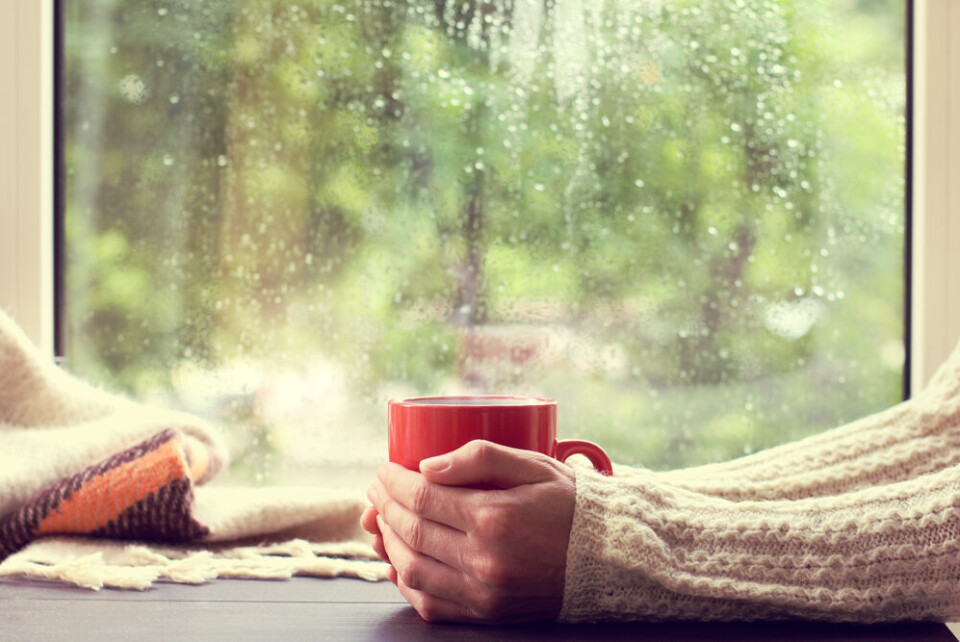-
White storks make strong return in France via nest ‘platforms’ and clipped wings
The Ligue pour la Protection des Oiseaux shares the conservation challenges in saving these birds from extinction
-
Hosting scheme in south-west France lets newcomers sample lifestyle
Households in nine Dordogne communes volunteer under Mes Nouveaux Voisins scheme
-
French boulangeries demand right for staff to work on May 1 so they can open
Artisan bakery owners can work but employees cannot, while certain industrial bakeries are allowed to remain open with workers
Temperature drop in France: Government advice on how to stay healthy
With autumn set to arrive suddenly, people are reminded of how to boost their immune system

Autumn is set to arrive with a bang in France this weekend with temperatures expected to plummet by up to 12-15 degrees in some areas.
Rain and colder temperatures have already arrived in some parts of the country, with the rest set to follow suit tomorrow (Saturday, October 14).
Read more: Big temperature drop of up to 12C on way for Saturday in France
Temperatures remained high in many areas yesterday (Thursday October 12), reaching up to 29C in Limoges and 30C in Tarbes and Toulouse.
But on Saturday, the lack of tropical winds from the Atlantic ocean will coincide with extended rainfall across the centre and west of France, causing a widespread and significant temperature drop.
Health authority Santé publique France has warned that a drop in temperatures can cause a rise in infectious diseases, such as "colds, flu, a runny nose [and] gastro-enteritis”, as well as Covid-19.
Yet, it is not so much the cold that causes the issues, but people’s change in behaviour in colder temperatures, SPF said. This includes closing windows and not airing out rooms, which can cause viruses to spread more easily.
Advice includes:
- Air out rooms regularly. Air out spaces at home and work for at least 10 minutes per day, to allow air to circulate and refresh the space.
- Go outside, even if it is cold, in appropriately-warm clothing. Even a 10-minute walk can help your body produce Vitamin D, which is needed for our bones and muscles, and can strengthen our immune system, says food and health safety authority Anses.
- Eat a balanced diet. It can be tempting to comfort eat in winter, but it is still important not to eat too much, and ensure you still consume enough fresh fruit and vegetables, says the Assurance Maladie de Paris.
- Eat good quality honey. The Assurance maladie claims that eating honey offers antibacterial advantages. Royal jelly is also a good source. This can be taken in hot drinks, it says.
- Stay hydrated. Make sure you drink enough water, even if it is not hot outside. This can include water in hot drinks, but not exclusively from caffeinated sources such as coffee, tea or matcha; or high-sugar options such as fizzy drinks or hot chocolate.
- Keep active. It may be less attractive to go outside to practise sport in cold weather, but bundling up and doing some activity - or working out indoors such as on a treadmill or in a gym - is a good way to stay healthy and ensure your body can fight any outside health threats.
- Sleep well. Exercise during the day can also help you sleep better at night, which is a key way to strengthen the body’s immune system to fight off viruses and other complaints. A minimum of eight hours is recommended, helped by a nighttime routine and a consistent bedtime.
- Stay distanced. ‘Barrier gestures’- which became so well-known during the peak of the pandemic - are also recommended, and include everything from washing hands regularly and drying them well, using disposable tissues and throwing them away securely, and staying distanced if you are ill, to covering your mouth with your inner elbow (rather than your hand) if you cough or sneeze.
The coldest weather is expected to disperse by Sunday (October 15), but temperatures are not likely to return to the summery conditions seen thus far this autumn.
Related stories
Big temperature drop of up to 12C on way for Saturday in France
What to do (and not do) during heavy rain and flood alerts in France
France storm warnings continue: tips on how to secure your property
























